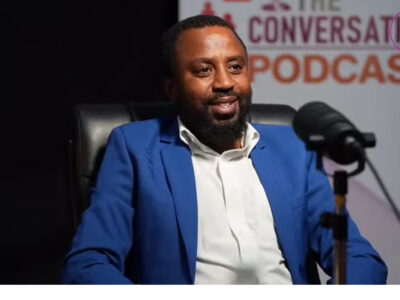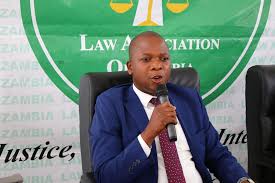Welcome to Justice O’ Metre, an independent tracker on high profile cases affecting mostly politically-exposed persons within the Zambian judicial system, the rule of law and the administration of justice for common good.
SEPTEMBER REVIEW
The month of September turned out to be not so warming for the former first family, as the Lungu’s had more properties forfeited to the State for allegedly being proceeds of crime. The latest victims were the former first lady, Esther Lungu, and her daughter, Tasila Lungu.
DPP v ESTHER LUNGU
The EFCC’s judgment, delivered behind closed doors at the Supreme Court, concluded that Esther Lungu constructed the luxurious 15 double-storey flats in State Lodge through proceeds of crime. She had reportedly failed to provide proof of income sources for the construction of the properties, despite her defense that they were matrimonial assets.
The Court dismissed Esther’s argument that the DPP violated the constitution by attempting to seize her properties without a trial to prove her guilt.
She insisted that the flats were developed by her husband, former President Edgar Lungu, and were part of their matrimonial estate.
The Court held that she should provide documentary evidence, such as bank statements, to support her claim that her husband financed the construction of the properties.
DPP v TASILA LUNGU
The Economic and Financial Crimes Court, High Court Division, ordered the forfeiture of former president Edgar Lungu’s daughter Tasila’s Sinda farm to the state, on grounds that it was a proceed of crime.
The court, in its judgment, stated that Tasila’s total earnings during the period under review amounted to K154,200, which is far insufficient to have purchased and later developed the farm valued at K8,849,098. The court stated that there was no money trail to show that the funds used to buy and develop the farm came from her father, Lungu, as she had failed to provide documentation.
The court added that if Tasila had any other economic activities beyond being a councillor, she would have been required to pay taxes.
THE PEOPLE v STEPHEN KAMPYONGO, WANZIYA CHIRWA
Former Home Affairs Minister, Stephen Kampyongo, was acquitted of corruption charges, but his relief was overshadowed by the conviction of his wife, Wanziya Chirwa.
Kampyongo, who faced 12 counts of corruption alongside his wife, walked free, while Chirwa was sentenced to three years in prison for corruption-related offenses. Magistrate Sylvia Munyinya, who presided over the case, found Chirwa guilty of five counts of corruption.
Despite the joint charges, Magistrate Munyinya acquitted Kampyongo, stating there was insufficient evidence to convict him.
The EFCC argued that the properties were tainted, being proceeds of illegal activities. While Kampyongo was acquitted, the court ruled that Chirwa played a significant role in the corrupt dealings, leading to her conviction.
THREE JUDGES v JCC, AG
Three Constitutional Court judges, Annie Sitali, Mugeni Mulenga, and Palan Mulonda, commenced judicial review proceedings challenging their suspension from office.
They are challenging their suspension by President Hakainde Hichilema, which was recommended by the Judicial Complaints Commission (JCC).
They argued that the issues in the current complaint, filed by Moses Kalonde, were already dealt with in previous complaints related to the 2016 presidential petition involving Hakainde Hichilema and Edgar Lungu. The complaints were concluded in 2017.
The judges are asking for a certiorari order to quash the JCC’s decision made on September 23, 2024, to reopen the case.
They claimed the JCC lacks jurisdiction as the matter was resolved in earlier complaints filed by various individuals, including Emmanuel Mtonga, Alfred Chims Mbewe, and Douglas Syakalima.
Additionally, they seek to overturn the JCC’s recommendation to suspend them, and President Hichilema’s decision to act on that recommendation, arguing that both actions violate the principle of res judicata.
THE PEOPLE v GIVEN LUBINDA
The Lusaka Magistrate Court acquitted Patriotic Front (PF) faction Vice President Given Lubinda in a matter where he was accused of failing to surrender a diplomatic passport and holding more than one passport.
Lusaka Resident Magistrate, Kawama Mwamfuli, ruled that the state had failed to prove a prima facie case against Lubinda.
Magistrate Mwamfuli ruled that none of the three state witnesses proved that Lubinda failed or refused to surrender the diplomatic passport. According to evidence before the court, Lubinda eventually surrendered his diplomatic passport after leaving office as Justice Minister following the 2021 General Election.
THE PEOPLE v BOWMAN LUSAMBO
Lusaka Magistrate Trevor Kasanda acquitted Former Lusaka Province Minister, Bowman Lusambo, of three counts of attempting to interfere with witnesses.
Lusambo was accused of trying to dissuade or prevent three witnesses—Cosmas Kapula Chalusa, Ernest Sumani, and Mundia Mataa—from giving evidence in court between February 1 and April 30, 2022, in Lusaka, relating to a corruption case. But Magistrate Kasanda, in his judgment rendered on Thursday, found Lusambo not guilty of the offenses as the prosecution failed to adduce evidence.
The Anti-Corruption Commission, however, appealed against the acquittal to the High Court.
ANDREW KAMANGA v ADRIAN KASHALA, ELVIS NKANDU
The football battle was, in early September, moved from the Football Association of Zambia (FAZ) boardroom to the High Court as the head of the association, Andrew Kamanga, filed a defamation lawsuit against former FAZ General Secretary Adrian Kashala and Sports Minister Elvis Nkandu.
Kamanga is seeking damages, citing harm to his reputation due to public accusations and a sustained campaign against his leadership.
In his lawsuit, Kamanga claims that Kashala and Nkandu’s actions have subjected him to public ridicule, professional damage, and emotional stress.
He accused the two of orchestrating a malicious campaign aimed at undermining his authority as FAZ president and tarnishing his image.
Kamanga alleged that Kashala, during his time as FAZ General Secretary, awarded contracts to questionable entities without conducting the necessary due diligence.
This led to project delays and financial mismanagement, ultimately tarnishing the reputation of the football governing body.
According to the statement filed in the Lusaka High Court, Kamanga also accuses Minister Nkandu of attempting to reinstate former FAZ President Kalusha Bwalya into a supervisory role over national teams.
He pointed out multiple instances of alleged defamation by both Kashala and Nkandu, including false accusations and unsubstantiated public allegations.
CHAONDA NGWIRA v ZESCO, ERB, AG
Chaonda Ngwira, a member of the Patriotic Front (PF), filed a lawsuit against the government, alleging that the current load-shedding practices were unconstitutional and a violation of citizens’ rights.
The petition, which named Zesco, the Energy Regulation Board (ERB), and the Attorney General as respondents, argued that the widespread power cuts were illegal and posed a threat to the right to life as enshrined in Articles 11(1) and 12 of the Republican Constitution.
Ngwira contended that the government’s decision, executed through Zesco and the ERB, to implement extensive power outages under the guise of load-shedding has worsened the country’s economic challenges.
He is asking the High Court to order the immediate cessation of load-shedding, which he claimed has crippled businesses, disrupted essential services, and created severe economic hardships.
The lawsuit highlighted that the load-shedding measures, which began on December 15, 2022, were initially supposed to last four months.
However, they have since been extended indefinitely, with some areas experiencing daily power cuts of up to 21 hours or longer, far exceeding the original six-hour outages.
Ngwira argued that these extended blackouts were disproportionately affecting residents, businesses, and critical institutions like hospitals, schools, and police stations.
Ngwira further criticized the government’s handling of the energy crisis, accusing it of failing to manage the country’s energy sources and neglecting to invest in alternative energy solutions.
WARNING! All rights reserved. This material, and other digital content on this website, may not be reproduced, published, broadcast, rewritten or redistributed in whole or in part without prior express permission from ZAMBIA MONITOR.












Comments